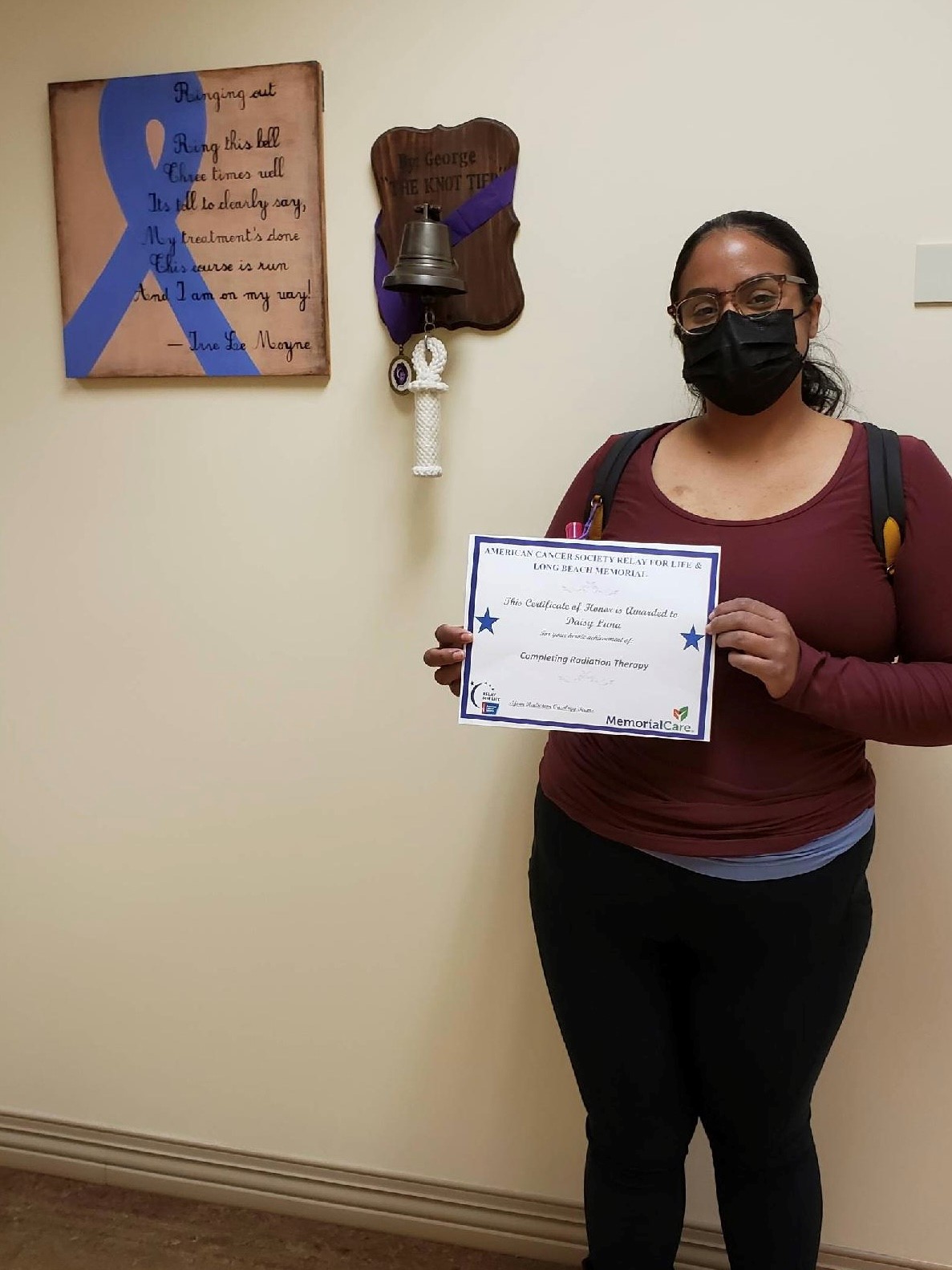 After experiencing stomach pain, dizziness, and a lack of appetite for several months, 30-year-old Daisy knew something was wrong and booked an appointment with her primary care physician. She assumed it was a different medical issue, but three days after getting lab work done, she was faced with an unbearable pain in her stomach. She was rushed to the Emergency Department and was diagnosed at MemorialCare Long Beach Medical Center with stage four colorectal cancer.
After experiencing stomach pain, dizziness, and a lack of appetite for several months, 30-year-old Daisy knew something was wrong and booked an appointment with her primary care physician. She assumed it was a different medical issue, but three days after getting lab work done, she was faced with an unbearable pain in her stomach. She was rushed to the Emergency Department and was diagnosed at MemorialCare Long Beach Medical Center with stage four colorectal cancer.
Daisy began receiving treatment at the MemorialCare Todd Cancer Institute at Long Beach Medical Center. The Colorectal Cancer Program is a leader in Southern California in treating patients with all types and stages of colorectal cancers. Each patient is cared for by a multi-disciplinary care team to develop a comprehensive treatment plan to meet their individual needs.
Daisy’s treatment initially began with an ostomy surgery, which is a life-saving procedure that allows bodily waste to pass through a surgically created stoma in the abdomen into a prosthetic known as a pouch or ostomy bag on the outside of the body. Ronald Wolf, M.D., surgical oncologist, MemorialCare Todd Cancer Institute also performed liver surgery on Daisy, removing some cancer out of part of her liver and gallbladder.
“We provide access to minimally invasive laparoscopic and robotic-assisted surgery techniques to our patients, whether they are in the early or advanced stages of colorectal cancer. Because of our innovative techniques, the surgeries often result in less pain, less blood loss and faster recovery time,” said Dr. Wolf.
Daisy was also cared for by Milan Sheth, M.D., hematologist/oncologist, MemorialCare Todd Cancer Institute. He helped guide her through her other phase of treatment with radiation and chemotherapy.
“Though colorectal cancer is more commonly seen in older patients, there is an increasing observation that younger patients are now being affected. In fact, the screening guidelines have now recently been modified to begin from age 45 instead of 50. And I would expect that in the near future, it will change again to begin from the age of 40. Daisy’s cancer is unfortunately advanced, but with the expertise of skilled surgeons like Dr. Wolf and more sophisticated chemotherapy and radiation therapy, there is still an opportunity to cure such patients,” said Dr. Sheth.
Daisy is now waiting to get another MRI done to see the progress of her tumor.
It’s been the most difficult time in my life, but I would not be where I am today without the guidance of the amazing medical staff at the MemorialCare Todd Cancer Institute. They don’t give up on me, and it inspires me to not give up on the fight against cancer.
Daisy
She emphasized her preference for MemorialCare over other healthcare systems as she gave birth to her two children here. Consequently, she continued her care with MemorialCare when she was diagnosed with colorectal cancer.
Though this experience has been challenging for Daisy and her family, she expresses her gratitude for the treatment from the MemorialCare Todd Cancer Institute and the support from Drs. Wolf and Sheth.
“Dr. Wolf made the surgery process so seamless for me, and though it was a scary time, he helped me through it and always made sure I understood the process. Dr. Sheth has been amazing. He was really helpful and informative. He always asked if I needed anything, any referrals, or if I needed to talk to somebody. He was just really helpful overall,” says Daisy.
Not only did Daisy’s care leave an impact on her, but The Bucket List Project Foundation held at the MemorialCare Todd Cancer Institute positively enriched her life too. The Bucket List Project Foundation operates a wish fulfillment program for adult patients with life-limiting illnesses. Daisy’s family was gifted gas and grocery gift cards from the Foundation.
Her family was also invited by one of MemorialCare’s board members to Big Bear, where they went exploring, rode a boat, visited a movie theatre and relaxed while barbequing.
Daisy explains the impact that the cancer has had on her life, children and husband.
“It has completely changed my life. I thought I was strong, but it mentally, physically, and emotionally tore me down. When I was diagnosed, my youngest children were one and two-years-old. My husband had to stop working to take me to my appointments and help with the kids,” said Daisy
One year after being diagnosed, Daisy is feeling better and looks forward to getting back to a normal life with her family.